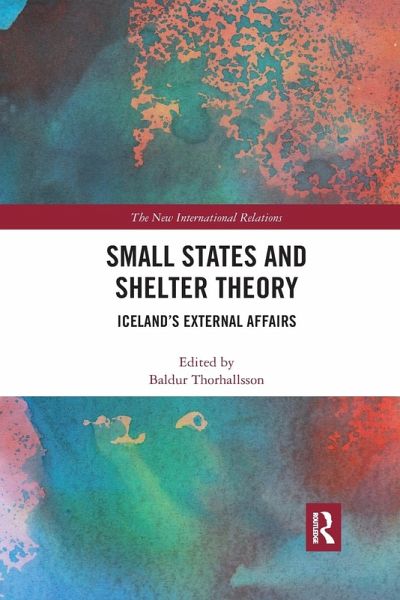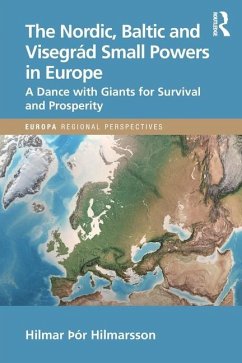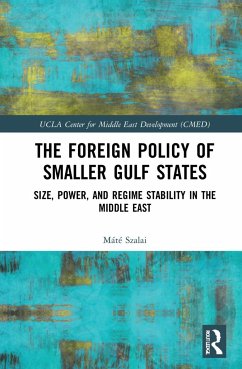
Small States and Shelter Theory
Iceland's External Affairs
Herausgegeben: Thorhallsson, Baldur
Versandkostenfrei!
Versandfertig in 6-10 Tagen
45,99 €
inkl. MwSt.
Weitere Ausgaben:

PAYBACK Punkte
23 °P sammeln!
Small states are dependent on the economic, political, and societal shelter provided by larger states and international organizations to survive and prosper.Iceland provides an ideal case study for shelter theory, due both to its smallness as compared with its larger neighbouring states, as well as its status as both an entity and then as a state. That Iceland has historically been so isolated, relative to other small European states, also makes it easier to trace the country's interactions with other actors, since the impact of each interaction can be measured more definitively thus broadenin...
Small states are dependent on the economic, political, and societal shelter provided by larger states and international organizations to survive and prosper.
Iceland provides an ideal case study for shelter theory, due both to its smallness as compared with its larger neighbouring states, as well as its status as both an entity and then as a state. That Iceland has historically been so isolated, relative to other small European states, also makes it easier to trace the country's interactions with other actors, since the impact of each interaction can be measured more definitively thus broadening the theory's validity and offering new insights into its operations. The contributors to this volume focus on the extent of Iceland's external engagement with other states and the domestic consequences of this interaction. Societal shelter, in terms of transfer of norms and values, is as of much importance as economic and political shelter. By unpacking the structure of Iceland's external relations, this book demonstrates both the size-related disadvantages and the unique needs of small states to evaluate, explain, and predict small state behaviour.
This book will be of interest to all scholars in international relations, especially those interested in small state behaviour.
Iceland provides an ideal case study for shelter theory, due both to its smallness as compared with its larger neighbouring states, as well as its status as both an entity and then as a state. That Iceland has historically been so isolated, relative to other small European states, also makes it easier to trace the country's interactions with other actors, since the impact of each interaction can be measured more definitively thus broadening the theory's validity and offering new insights into its operations. The contributors to this volume focus on the extent of Iceland's external engagement with other states and the domestic consequences of this interaction. Societal shelter, in terms of transfer of norms and values, is as of much importance as economic and political shelter. By unpacking the structure of Iceland's external relations, this book demonstrates both the size-related disadvantages and the unique needs of small states to evaluate, explain, and predict small state behaviour.
This book will be of interest to all scholars in international relations, especially those interested in small state behaviour.














